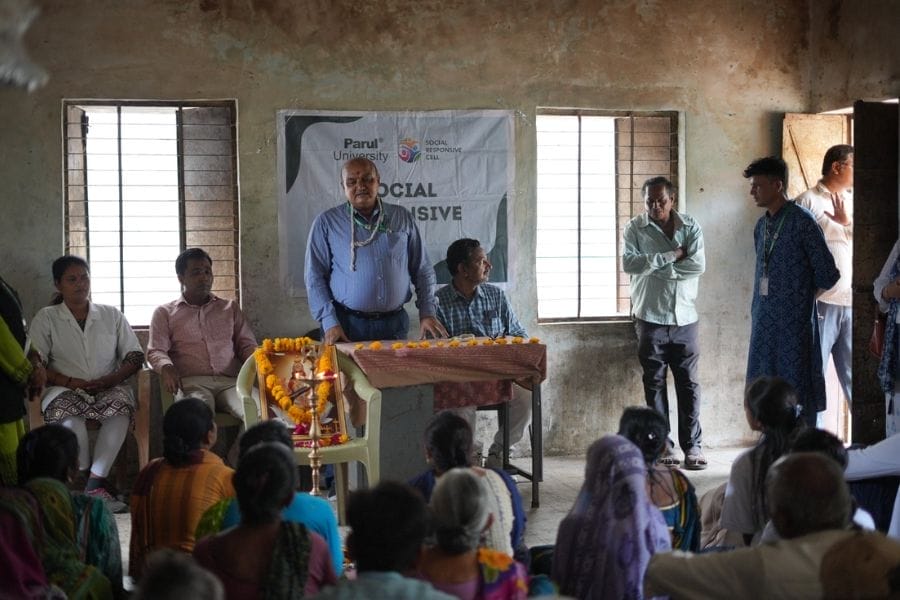New Delhi: Parul University, one of the leading institutes for higher education in India, has always been dedicated to the nobility of purpose that is innate in imparting knowledge. True to the ideals of education, the university aims to bring up holistic candidates who are not only savvy in their field of interest but also sensitive to the needs of society. As a result, the Social Responsive Cell has been an integral part of the Parul University student body, fostering social responsibility among the candidates.
Powered by a dynamic set of student volunteers, the main aim of the Social Responsive Cell is to promote social welfare and encourage the participation of people in welfare efforts. The university cell, since its inception, has striven to make constructive efforts towards resolving various prevalent social issues, such as gender discrimination, climate change, epidemic, and other causes. Here are some of the key areas the cell works in: Preventive Health and Hygiene, Preservation of the Environment, Livelihood and Skill Development, Women and Child Development Activities, and Rural Infrastructure Development.
Outlining the vision of the Social Responsive Cell, Dr. Geetika Madan Patel, Vice President Parul University, says, “Education, in its ideal form, is the development of the self, and that is impossible to achieve without the ability to empathize with others’ causes. Therefore, Parul University has long dedicated its energies to fostering social awareness in its cohort via several welfare programs. The Social Responsive Cell exemplifies the university’s goals of being in the service of others, and we hope that it continues to power on its trodden path of compassion, goodwill, and welfare.”
Some of the best initiatives taken by the Social Responsive Cell have been during the COVID-19 pandemic when several groups of people needed an extra helping hand. Extending their help, volunteers made and distributed food and other amenities among civic forces as well as vulnerable people who suffered losses during the period. For example, around 10,000 riots were distributed among the local communities, including police officers working tirelessly across Vadodara.
Similarly, during the epidemic, the university donated ventilators, while the doctors and nurses at the medical camps organized by Parul University offered free tests and checkups to numerous people at risk. Moreover, the faculty members of the university donated Rs 28 lakh to the Chief Minister’s Relief Fund, signalling that the commitment to social welfare at Parul University is an indivisible part of its pedagogy.
On a similar note, the university has been continuously dedicated to alleviating crises around Vadodara, such as the devastating flood last August. Among other initiatives by the Social Responsive Cell lies drives to plant trees and conserve nature, as well as the women-centric initiative of equipping different female members of society with self-defence training, thus empowering women to take charge of their safety.
Further, the Social Responsive Cell also runs an initiative named HUNF, which focuses on delivering tiffin to the elderly and offering them a support system if they lack it. All in all, Parul University has, over the years, owing to its commitment to social causes, positioned itself as a humanitarian force, in addition to its superlative pedagogic prowess.
To know more visit Parul University





